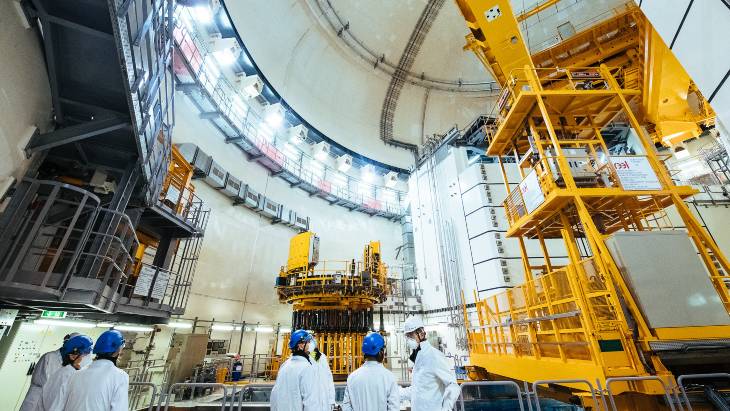The details of the organisation’s activities came in its newly-published Safeguards Statement for 2021. IAEA safeguards are technical measures included in safeguards agreements to verify that nuclear material is for peaceful use. In its report it also says the amount of nuclear material under safeguards increased by 2.1%.
"The IAEA successfully adjusted to the COVID-19 related restrictions, and was also able to complete in-field verification activities carried over from 2020," said Massimo Aparo, IAEA Deputy Director General and Head of the Department of Safeguards. "While travel restrictions, including quarantine requirements, still applied in some states, the agency increased its verification effort to draw independent and soundly based safeguards conclusions."
The full report, includes details showing how 2021 activity levels compare with earlier years:
 (Image: IAEA Safeguards Statement for 2021)
(Image: IAEA Safeguards Statement for 2021)
The IAEA said it was able to "draw safeguards conclusions for 185 of the 186 states with safeguards agreements in force. The one state without a safeguards conclusion is the Democratic People’s Republic of Korea, also known as North Korea, where the IAEA did not implement safeguards and, therefore, could not draw any conclusion".
Of the 185 states where safeguards were implemented during the year, 177 had a comprehensive safeguards agreement. Of these, 132 also had an additional protocol in force which "significantly increases the IAEA’s ability to verify the peaceful use of all nuclear material".
The IAEA says that in 2021 it was able to say for 72 states with a comprehensive safeguards agreement and additional protocol "all nuclear material remained in peaceful activities". For the other 105 states with comprehensive safeguards agreements, the IAEA declared that "declared nuclear material remained in peaceful activities".
For the five countries with voluntary offer agreements in force (USA, China, France, Russia and the UK), the IAEA concluded that "nuclear material in selected facilities to which safeguards had been applied remained in peaceful activities or had been withdrawn from safeguards as provided for in the agreements".
For Eritrea and the Federated States of Micronesia, new comprehensive safeguards agreements with a small quantities protocol - for states with minimal or no nuclear material and no plans to construct facilities - entered into force during the year, with an additional protocol for Eritrea and also for Zimbabwe.
The agency also reported that the year saw a Member State Support Programme established with Switzerland - the first new support programme since 2013 - joining a group of 20 other support programmes provided by individual IAEA member states and the European Commission. Member State Support Programmes support IAEA safeguards through financial contributions, training, technology transfer, and expert collaboration.
"In 2021, we strengthened our safeguards implementation support to our member states, while establishing new partnerships in support of our mission," said Aparo. "Implementing effective global nuclear verification takes cooperation between the IAEA, its counterparts, and our partners - cooperation which is essential for the future success of our mission."





_18570.jpg)
_16159.jpg)
_49205.jpg)
_18938.jpg)





